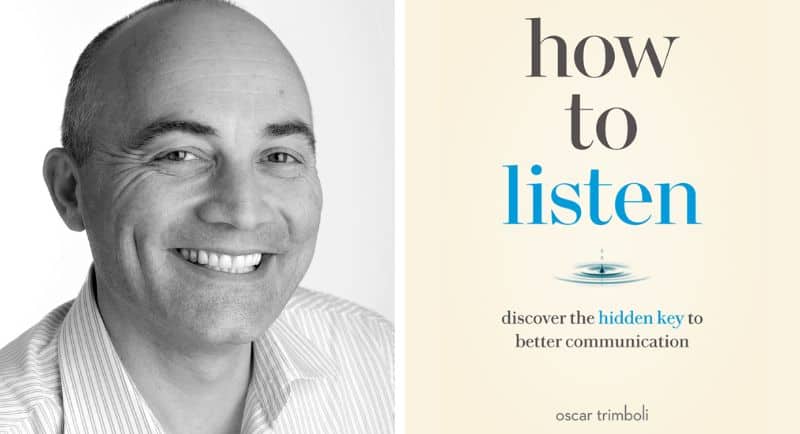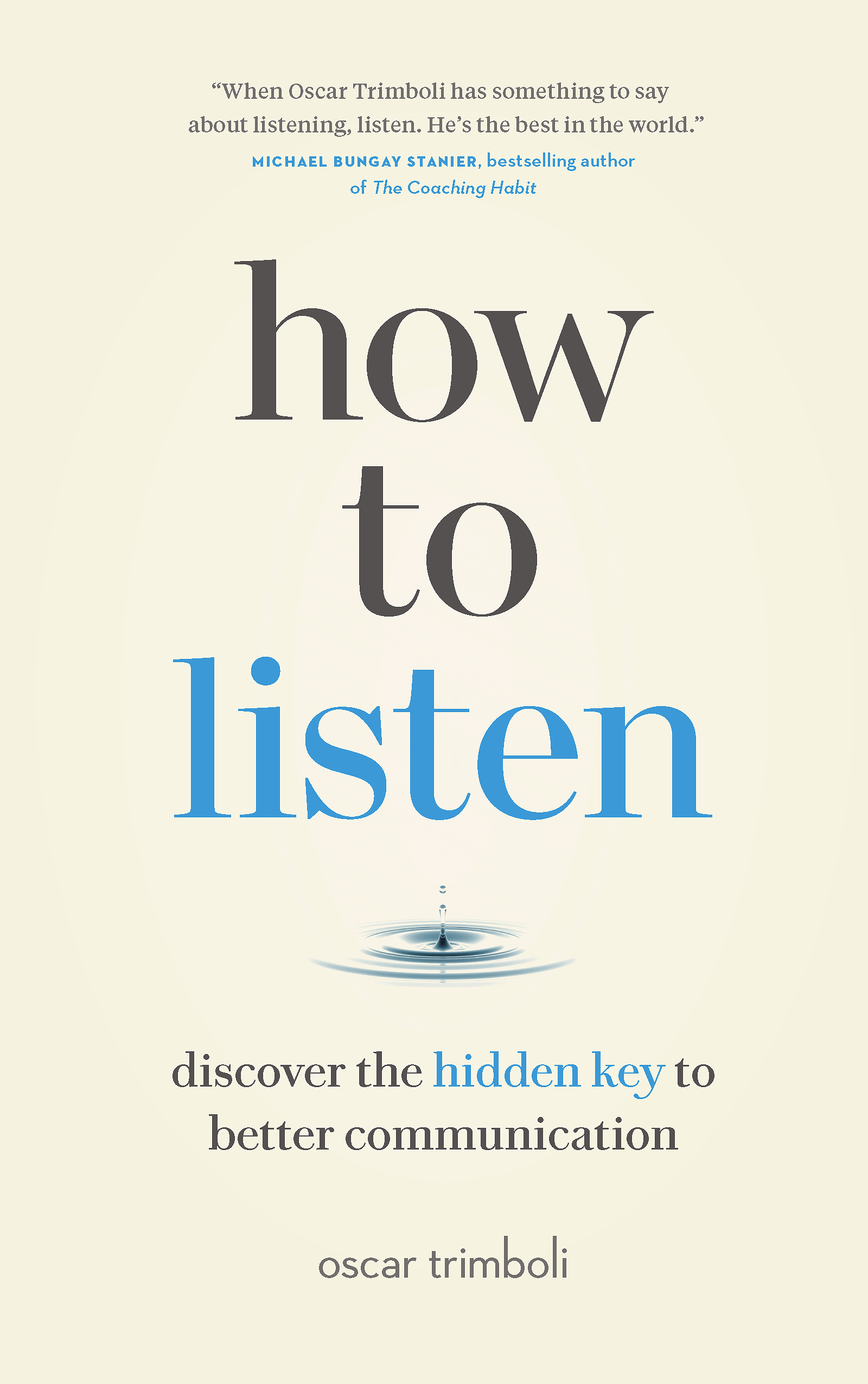Best-selling author of How to Listen, podcast host and sought-after keynote speaker Oscar Trimboli will take to the podium at the upcoming Mediaweek Academy.
Trimboli will share his wisdom with attendees on listening skills alongside Bare Feat founder Chloe Hooper.
Ahead of the highly anticipated Academy session, Trimboli spoke to Mediaweek about his book How To Listen, what makes an outstanding listener and the key to deep listening in the industry.
Trimboli on the demand for insights into listening
Trimboli shared there were two discussions in 2020 that led to the publication of How to Listen. The first was with a publisher looking for a book series about listening in the workplace, from how to listen for leaders, listening in sales, and how to listen when taking a brief.
The second was with the Deep Listening Ambassadors, a community of workplace professionals passionate about the impact of listening.
Though he already had a stack of accomplishments behind him, including two books, a set of practice cards, a jigsaw game, a workshop, and completed extensive research and interviews on the subject, there was still a demand for him to write the most comprehensive book on listening.
Though he had already written two books, Trimboli said that there was a demand for him to write the most comprehensive book about listening in the workplace, despite having published two books, a set of practice cards, a jigsaw game, and a workshop, interviewed over 100 diverse workplace listeners and conducted research with over 27,000 people.
Trimboli said: “The difference between hearing and listening is action. If I practice what I teach, I need to take action and write the third book about listening.”
Trimboli on what makes an outstanding listener
Trimboli described leading his podcast Deep Listening as one of the joys of his work. The Apple Award-winning series sees him chatting with the world’s most diverse listeners, from air-traffic controllers and acoustic engineers to body language experts, deaf and foreign language interpreters, hostage negotiators, journalists, and judges.
“During these interviews, I have seen a discernible pattern to their listening that reveals what a great listener sounds, looks, and feels like,” he shared.
Trimboli highlighted what makes them outstanding listeners: “These shared characteristics of world-class listeners are curiosity, flexibility, and openness.”
The art of deep listening and maintaining the skill
When it comes to the key to deep listening in the marketing and advertising industry, Trimboli noted that too many people think sustainable and impactful listening begins with focusing on the speaker.
“This is handy, yet the most important person to listen to is yourself,” he revealed.
Trimboli explained: “When a professional orchestra prepares for their performance, they tune their instruments every time, whether they are playing in the same concert hall, a new location, with regular performers, or with guests.
“The process and practice of tuning their instruments before they begin are crucial to creating a predictable and consistently high-quality performance.”
Trimboli continued: “Although a musician may have performed in the same building only twenty-four hours earlier with the identical instrument, they still humble themselves to their conductor, the audience, and fellow performers and tune their instruments every single time.”
“While undertaking that tuning, they are simultaneously tuning into the sound of the other instruments and performers.”
Trimboli highlighted that tuning is a skill, a practice, and a strategy. Tuning is a sign of discipline, self-respect, and mutual respect.
“Getting ready for a performance is about their physical presence—where they sit, how they sit, lighting, the placement of sheet music, and clear eye contact with the conductor,” he said.
“Even if the orchestra has done it thousands of times, the practice of tuning is always an act of curiosity and care. It is a process of practice with a mindset toward mastery,” he added.
Trimboli noted that musicians are deliberate, sequenced, and thorough when tuning their instruments.
“It is not something they can fake. You either are tuning the instrument, or you are not. This is a commitment to consistent improvement and creating a memorable experience rather than just playing music,” he said.
“The same is true for listening. You need to prepare yourself for each discussion.
“Listening commences before the conversations,” Trimboli added.
From his extensive research, Trimboli revealed a surprising finding he discovered was that great listeners influence how speakers tell their stories.
“They know that listening to what is said is helpful, yet noticing what is NOT said is powerful,” he said.
“They understand that when someone is genuinely listened to, they feel heard, seen and valued. They help the speaker move from what they say the first time to helping them to say what they think and mean.
Trimboli noted: “When someone at work is heard in this way, meetings are shorter, and those meetings create a bigger impact on the speaker, the listener and what they are seeking to achieve.”
The importance of what is left unsaid
Though Trimboli noted earlier that world-class listeners have curiosity, flexibility, and openness, he also stressed that what is left unsaid is just as important when it comes to deep listening.
“Noticing what is unsaid is transformational, yet our analysis of over 27,000 workplace listeners reveals that only 2% of people have the consciousness to notice what is NOT said,” he revealed.
Trimboli continued: “Transformational listening happens when you can help the speaker to say what they think and mean. When you listen for meaning, opposing ideas and views can coexist and cooperate. This is the essence of Deep Listening: impact beyond words.”
Trimboli on maintaining work-life juggle
In addition to his work with The Marketing Academy, his popular Deep Listening podcast and his writing, Trimboli revealed his key to balancing all his projects is prioritising his balance.
“In life, you have three balls to juggle – your health, your family and your profession. Two of those balls are made of glass, and one is made of rubber.
“I’m very good at allowing the rubber ball to drop, bounce, and stop because I know I can pick it up later,” Trimboli added.
–
Top image: Oscar Trimboli and his book How to Listen

